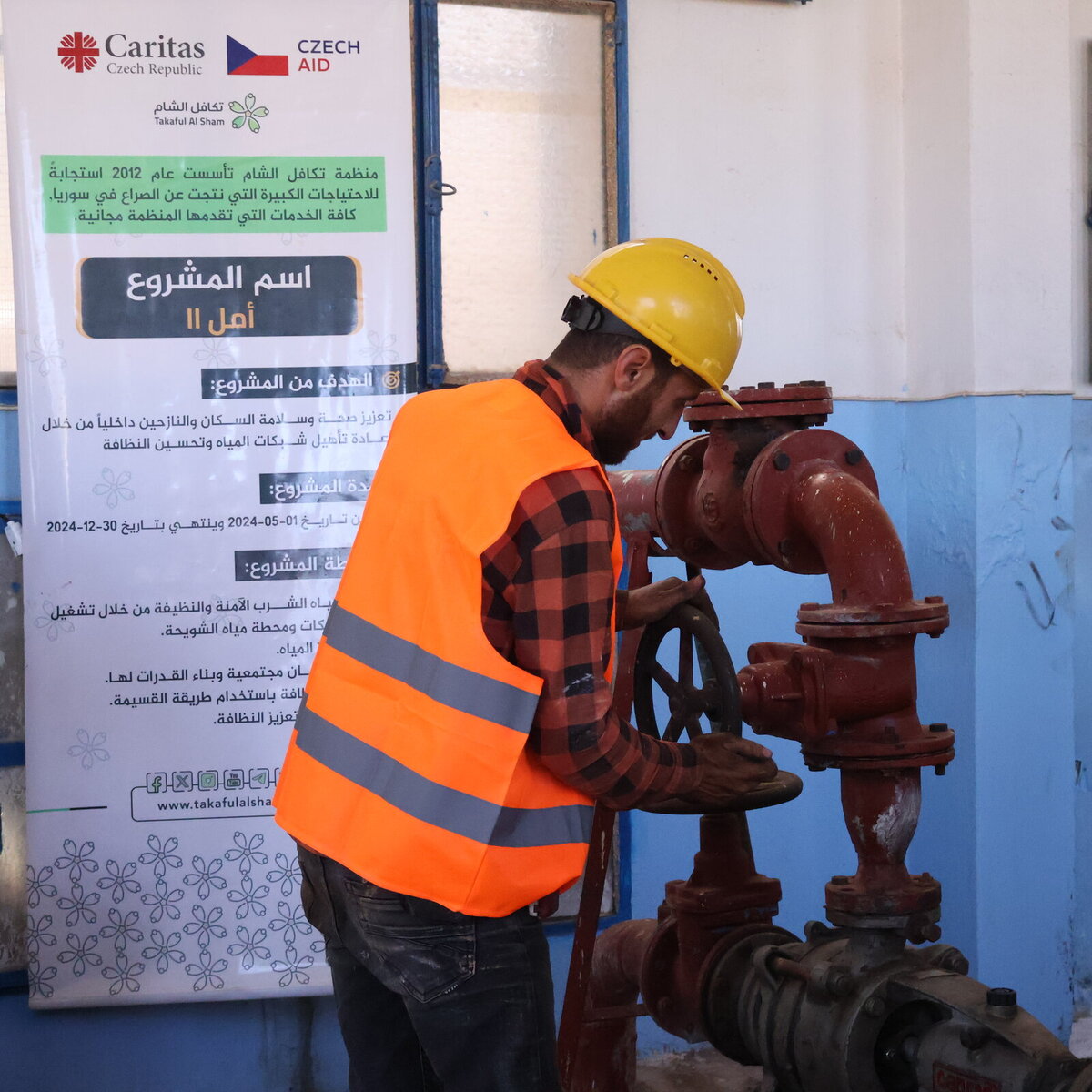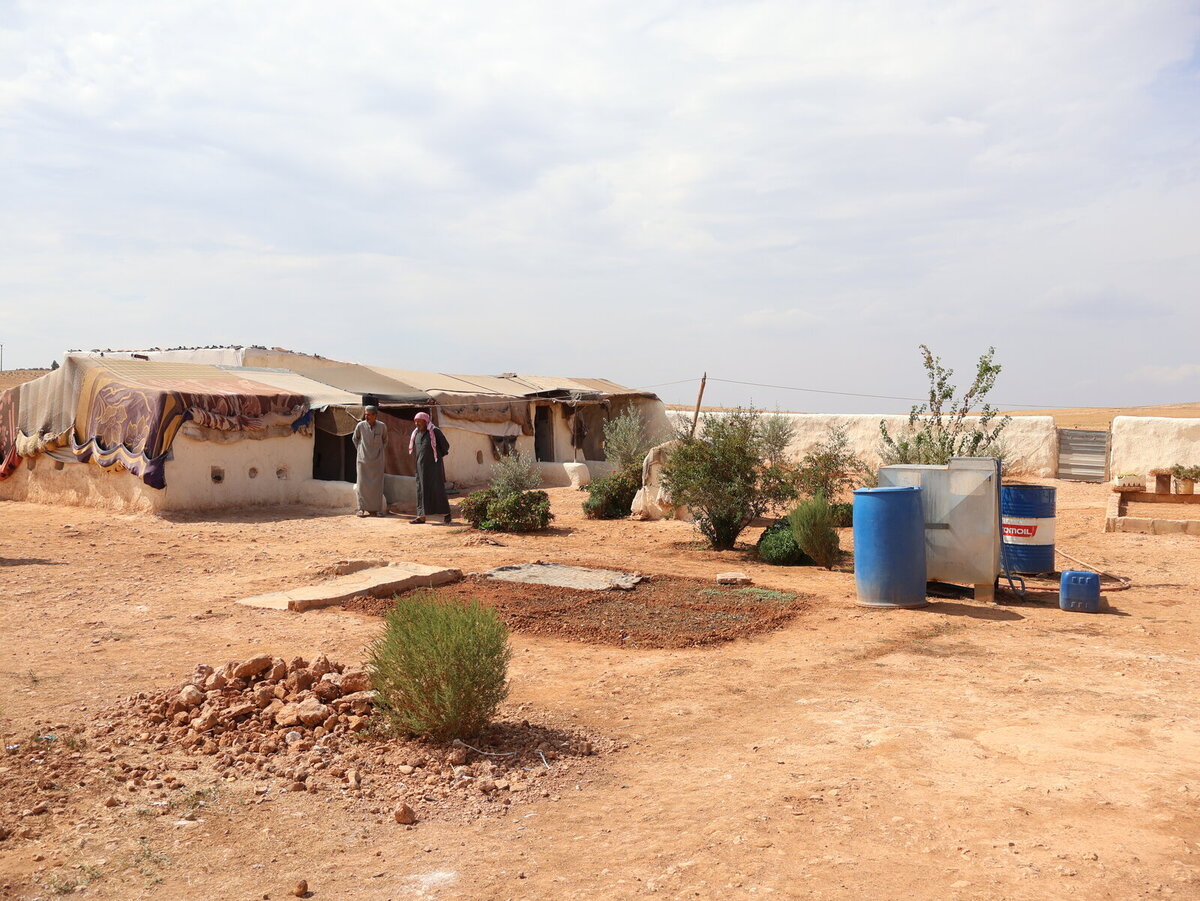Northwest Syria is facing yet another severe crisis. Renewed fighting and ongoing violence are affecting people who have been struggling to survive in nearly unimaginable conditions for years. After 13 years of war, Syria's critical infrastructure and essential services are on the brink of collapse. We spoke with Mohammad Hafed, our colleague in Syria, about the current situation, daily life near the frontline, and Caritas Czech Republic's humanitarian efforts.
Mohammad, how would you describe the current situation in northwest Syria? How has the recent escalation affected the humanitarian situation?
The situation is very tense. In recent days, fighting has broken out on two fronts.
On the western front, The Aggression Deterrence Forces, which are groups of the Free Syrian Army led by Hay'at Tahrir al-Sham (HTS, Salvation Government Military Forces) launched an offensive and now controls almost the entire Idlib governorate and the entire Aleppo city with its southern and northern rural areas. They are advancing towards the northern part of Hama governorate. (editor's note: according to the latest reports from 5th of December, the groups have taken control of the city of Hama)
In northern Aleppo governorate, clashes led by the Syrian National Army (under the battle of Dawn of Freedom), have erupted. They now control most rural areas in northern and eastern Aleppo.
Adding to the crisis, Russian airstrikes are targeting Idlib and Aleppo daily, with hospitals and healthcare facilities being hit the hardest. This has devastating consequences for civilians, leading to numerous injuries and fatalities.
What are the most urgent needs in northwest Syria right now? How has the fighting impacted people's lives?
People are fighting for basic survival. In villages around Idlib and Aleppo, which have been on the frontline for years, everything is destroyed—homes, infrastructure, water sources. People desperately need shelter and basic hygiene facilities.
In Aleppo itself, the situation is slightly different. The biggest issues are a lack of bread, heating fuel, and ready-to-eat food. Recently, there were problems with water supply to households, but this is beginning to improve. Caritas Czech Republic has also been helping to improve access to drinking water this year.
In the long term, it will be necessary to focus on access to water, hygiene facilities, and safe shelter, as well as improving food availability and restoring livelihoods.
The fighting has disrupted daily life in northwest Syria. What are the broader consequences of the current situation?
Everyday life has come to a halt—schools are closed, and healthcare is inaccessible. Sick and injured people suffer the most. Hospitals are either destroyed or lack basic medical supplies.
Displaced people are also in dire need of safe shelter. Many of them live in makeshift conditions without basic necessities.
How has the fighting affected you personally?
I live in the town of Marea, just two kilometres from the frontline. When the recent fighting began, several Russian airstrikes hit our area. It was terrifying. We packed our belongings in case we had to flee, and I spent several sleepless nights monitoring the situation and thinking about how to keep my family safe. I also called friends in nearby villages to secure a safe place for us if we needed to escape.
We’ve been living near the frontline for about ten years. Over that time, we’ve become accustomed to regular shelling, though you never truly get used to it. Every week, at least one of my relatives has died because of the shelling. That is our reality.
The fighting has now moved away from our area, and it looks like it will be calm, at least for a while.
Caritas Czech Republic has an office in A’zaz. Has this area been affected by the recent fighting?
Our office is located in A’zaz, in western Aleppo province. During the recent fighting, the frontline moved closer to the area. However, the fighting has since shifted, and our office is now in a relatively safe location.
You mentioned that people urgently need bread and heating fuel. How are local humanitarian organisations responding?
Local organisations are primarily distributing bread, with the help of many volunteers. Our partner organisations, SARD and TAS, are also assisting people affected by the escalation. Caritas Czech Republic is prepared to step in and provide additional help.
Working in such a dangerous area must be extremely challenging. What obstacles do humanitarian workers face in delivering aid in the conflict zones?
The situation in Aleppo remains very complex. Many residents do not accept the new opposition forces now in control of the area. Some locals judge outsiders by their car license plates. Vehicles from rural areas, including those used by humanitarian teams, have different plates than cars from Aleppo city. This difference can lead to suspicion and, in some cases, some of them might refuse to deal with you.
There are also hidden regime members in Aleppo, which increases the risk. Recently, two humanitarian workers disappeared, and one was killed by a sniper. Working in this environment is extremely dangerous and requires strict safety measures—moving in groups, sticking to designated routes, and following clear safety protocols.
Additionally, frequent airstrikes make delivering aid even more difficult. It may take weeks or even months before the situation stabilizes enough to enable safer and more effective humanitarian work.
Caritas Czech Republic has been supporting displaced people and those affected by the war in Syria for years. What does this assistance look like?
Our main focus is ensuring access to clean drinking water for thousands of local residents in northwest Syria. Bombing and poor maintenance of water infrastructure have left people without clean water and proper hygiene facilities.
In the Al-Bab area, in collaboration with our partner Takaful Al Sham (TAS), we repaired and maintained the Shweiha water station and surrounding water networks. In addition, we distribute hygiene kits and run awareness campaigns to help locals protect their health. However, we had to temporarily suspend the distribution due to the escalation.
We are also providing psychological support and assisting girls and women at risk of violence.
Our efforts in Syria are made possible thanks to financial support from the Ministry of Foreign Affairs of the Czech Republic and our collaboration with the Syrian humanitarian organization Takaful Al Sham (TAS).













